Research
Digital Content and Media Sciences Research Division
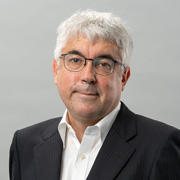 ANDRES Frederic
ANDRES FredericDigital Content and Media Sciences Research Division, Associate Professor
Detail: http://researchmap.jp/andresfrederic/
Introduction
Finding solutions by deepening our knowledge
In some way, shape, or form, we are all connected in our everyday efforts to use the knowledge that we have gained in the past to overcome the challenges we face today. My research has focused on the field of semantic and collective intelligence in order to arrive at a more enriched understanding and integration of data, behavior, acquired knowledge, and abilities and to then harness that connectivity to come up with innovative solutions to problems. Some of my earlier work was in the digital humanities and the Digital Silk Road Project, seeking to develop cultural heritage archives through the use of both informatics and humanities semantic mapping, and working toward the development of a visual lexical model for representing certain architectural content and managing data. I have also been involved in advances in Multiple Sensory Media, or MulSeMedia, systems, which enhance our multimedia experience through the real-world integration of all our senses for a more interactive and engaging experience, and really to go "beyond what we think is possible".
Enhancing interactions and transforming mindsets
I think it is important to view collective intelligence as an asset, using our past experience to help solve new problems, and working towards learning and achieving solutions in a better, faster way. We are faced with a deluge of data on a daily basis and also the challenge of summarizing what is really needed in a limited amount of time, while at the same time recognizing there may be gaps between expectations and satisfaction. Take for instance my work on intelligent cooking, as part of the Workshops on Data Engineering meets intelligent food and COoking Recipes (DECOR*), which explores the intersection of food science, data science, and data engineering, such as data and software organization, processing, composition integration, and sharing. This is all accomplished within the realm of a universal necessity--food--and, of course, the recipes for cooking it, along with the desire to better understand the expectations and feelings during and after tasting a dish. The acquisition, preparation, and consumption of food are integral parts of our daily lives and all part of the carbon footprint in our kitchens. Research in intelligent food and cooking focuses on not only the process of cooking, but also ways to enhance human-food interactions and really transform our thinking about our cultural and environmental interactions with food and each other through ground-breaking innovations in data science.
Increasing awareness for a new vision of the future
Sometimes there is hesitancy in embracing something new or taking a step in a different direction, like that hesitation before jumping into a pool of cold water. However, research is rarely linear, and if we take that leap, it often leads us in new and exciting directions, like being able to monitor the moodflow or psychic activity of conference attendees and exploring how to use such data in a beneficial way, or working towards a better understanding of semantic or collective intelligence in the quantum world. The key to any research pursuit is to develop yourself and your awareness of the possibilities, and like data engineering, explore the connectivity of available information for the benefit of society, thereby paving the way for a brighter future.
*DECOR@ICDE2022 http://research.nii.ac.jp/decor/decor2022.html

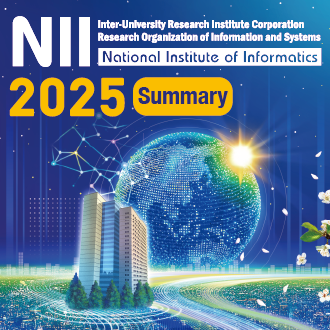 Summary of NII 2024
Summary of NII 2024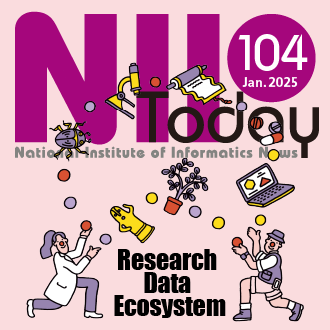 NII Today No.104(EN)
NII Today No.104(EN)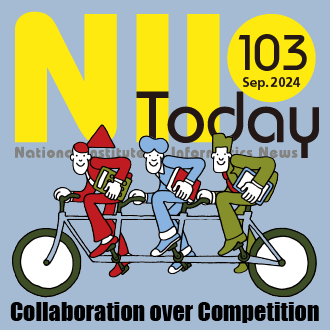 NII Today No.103(EN)
NII Today No.103(EN)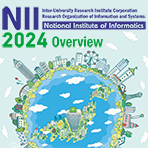 Overview of NII 2024
Overview of NII 2024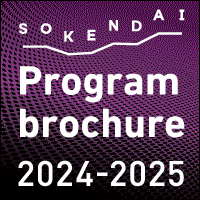 Guidance of Informatics Program, SOKENDAI 24-25
Guidance of Informatics Program, SOKENDAI 24-25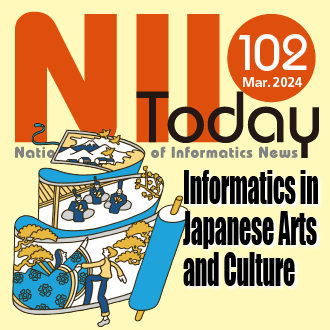 NII Today No.102(EN)
NII Today No.102(EN)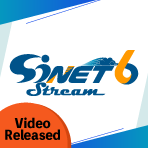 SINETStream Use Case: Mobile Animal Laboratory [Bio-Innovation Research Center, Tokushima Univ.]
SINETStream Use Case: Mobile Animal Laboratory [Bio-Innovation Research Center, Tokushima Univ.]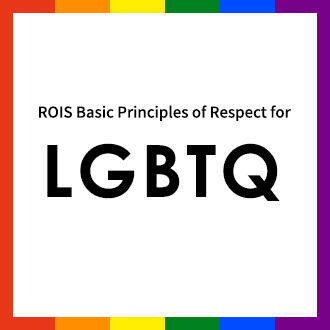 The National Institute of Information Basic Principles of Respect for LGBTQ
The National Institute of Information Basic Principles of Respect for LGBTQ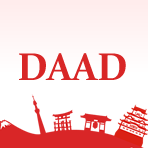 DAAD
DAAD
